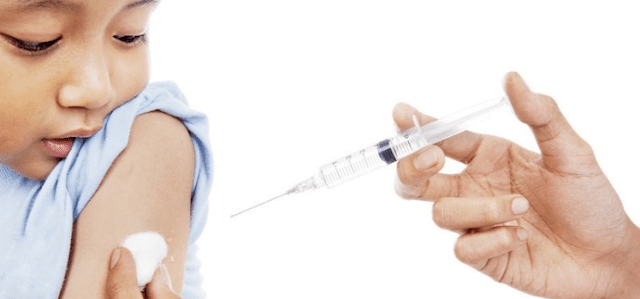How Serious are Measles for a Baby?
The highly contagious measles virus produces flu-like symptoms along with a rash that covers the entire body. Because of widespread vaccination, measles is uncommon in the United States. However, millions of cases occur annually all across the world. Since a virus causes measles, there is no specific medical treatment for the illness. The infection needs to finish spreading. As per Dr. Promilla Butani, General Pediatrician in Delhi, ‘To stop the infection from spreading, a sick child should stay home from school, daycare, and other community or group activities, drink lots of fluids, and get lots of rest.’
For a newborn baby, measles can have devastating consequences. Because of the incomplete development of their immune systems, infants are more vulnerable to serious consequences. Pneumonia, encephalitis (inflammation of the brain), severe diarrhea, and dehydration are some of these consequences. Measles in infants can occasionally be lethal.
Moreover, babies are too young to receive the measles vaccination, which is normally administered between the ages of 12 and 15 months. As a result, they are dependent on herd immunity as well as potential antibodies from their mother (if the mother has had measles previously or has received a vaccination). In order to strengthen their immune system and lessen the severity of the virus, a healthcare provider should regularly monitor a newborn who has been exposed to measles. Preventive interventions like immunoglobulin injections may also be suggested.
Measles in babies and children
Given the risk factors, complications, and preventative measures associated with measles in neonates, it is imperative to understand the potential severity of the disease and the precautions that need to be taken to protect newborns. Due to their immature immune systems, newborns are more susceptible to infections like measles. For the first several months of their lives, babies mostly rely on the antibodies their expectant mother gives them. If the mother has had measles in the past or has gotten the vaccination, these maternal antibodies may offer some protection to the infant. However, with time, this passive immunity deteriorates and may not be enough to completely protect the baby from illness, especially if they are exposed to high viral loads. It is important to take the help of Pediatrician in Delhi to manage and control the concerns related to measles.
As a result of coughing, sneezing, or talking, measles spreads through respiratory droplets. Airborne or surface viruses can survive for up to two hours, making them highly contagious. It is highly likely that a newborn baby exposed to an infected person will contract the disease. Measles follows a typical progression of symptoms, although severity can vary depending on the individual's age and health. Newborns often experience symptoms such as fever, red eyes, cough, rashes, and small white patches in their mouths. Measles can cause serious difficulties in newborns, several of which are potentially fatal. A newborn's immune system is not only immature, but it also lacks the memory cells needed to develop a potent defense against infections. The risk of problems and subsequent infections rises as a result. Meningitis, or inflammation of the brain's meninges, is one of the problems that might result from ignorance and delayed treatment. Pneumonia is a primary consequence that can cause severe respiratory distress. If seizures are not appropriately controlled, they may potentially be considered a complication. Severe dehydration is one possible related consequence, and panencephalitis can result in otitis media, an ear infection.
Even if a baby survives the measles' acute phase, the illness may still have long-term effects on their general health. After infection, the baby's immune system may remain compromised for several weeks or months, making them more susceptible to additional diseases. This immunosuppression, sometimes referred to as "immune amnesia," happens as a result of the measles virus's capacity to eradicate the immune system's memory cells, thereby wiping out the system's capacity to identify and react to earlier infections. Therefore, diseases like pneumonia, meningitis, or sepsis may be more common in infants who recover from measles. Furthermore, continuous medical care and rehabilitation may be necessary for any developmental delays brought on by encephalitis or other consequences, which can be extremely expensive for families and the healthcare system.
Measles prevention in neonates is based on several strategies, including immunization of the mother prior to conception, herd immunity, which lowers the amount of the virus that is transmitted overall (a protective barrier is formed), and thirdly, post-exposure prophylaxis, which involves immunoglobulin therapy to strengthen the baby's immune system. The newborn baby's isolation under the appropriate supervision of medical professionals is the fourth and most important component.
Newborns are more susceptible to the dangerous and sometimes fatal measles virus because of their immature immune systems and inability to receive immunization during the first year of life. Measles in newborns can result in life-threatening conditions such as pneumonia, encephalitis, and dehydration. These challenges underscore the significance of preventive interventions such as immunizing mothers, building population immunity, and providing timely medical care following exposure.
Given the severity of the illness, public health initiatives must keep concentrating on boosting vaccination rates, guaranteeing mother immunity, and shielding infants from this extremely contagious virus.
If one child is dealing with measles, they can get help from the General Pediatrician in South Delhi, Dr. Promilla Butani today at her clinic.




Comments
Post a Comment